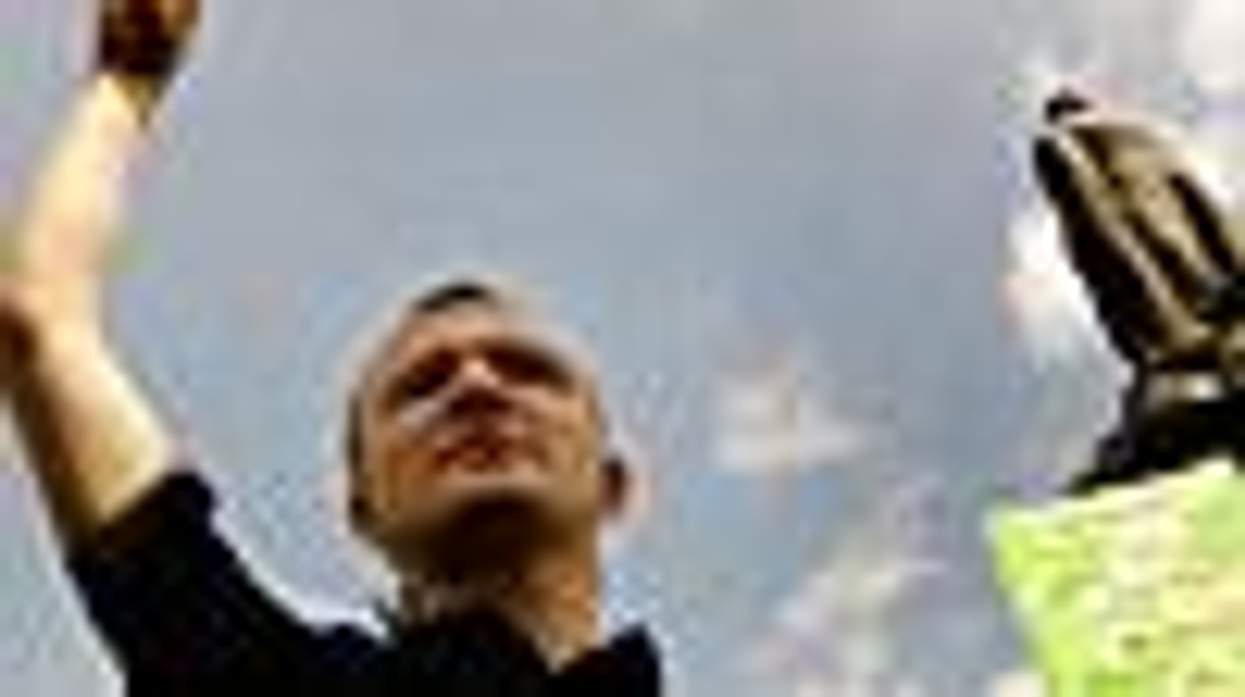Poland is set to
change course after a turbulent two years under a
government whose old-fashioned Catholic values and strident
approach to the European Union alienated many younger,
urban voters.
Opponents of
Prime Minister Jaroslaw Kaczynski turned out in strength on
Sunday, swelling turnout to a post-communist record of 53.8%
as they mobilized for a different vision of their
country, as a nation looking to a promising future
instead of a painful past and seeing European
neighbors as a source of opportunity rather than a threat.
Donald Tusk's
pro-E.U. and market-friendly Civic Platform party swept to
power in Sunday elections with overwhelming support from the
young and from better-off western Poland. Voters
rejected Kaczynski's nationalist and conservative
policies that often left their country at odds with the
European Union.
''I'm really
happy -- it seems that something can finally be different
now,'' said Maciek Morus, 32, a Warsaw musician who voted
for Civic Platform, not because he identified with the
party but simply to oust Kaczynski.
''Law and Justice
is dogmatic. It was too conservative with its
right-wing Catholic views and no sense of humor.''
Anna Zdrojewska,
an editor in Warsaw, expressed a sentiment common to
many younger Poles at home and abroad -- embarrassment at
Kaczynski and his twin brother, President Lech
Kaczynski.
''Kaczynski's
government was so shameful to me,'' said Zdrojewska, 24.
''I am really glad about the results.''
Observers say the
country is now better positioned to repair ties with
the E.U. and reject Kaczynski's drive to punish former
communists and collaborators for the regime that fell
in 1989. A court rejected the government's legislation
to screen up to 700,000 people for communist pasts,
including teachers and journalists.
The communist
purge and many of the Kaczynski's stances, including
support for higher pensions and his abrasive exchanges with
Germany -- a NATO ally and fellow EU member --
appealed to the older generation that remembers
communism and Nazi occupation during World War II.
''This election
was definitely about modernization and choosing
forward-looking policies as opposed to looking back to the
past,'' said Pawel Swieboda, director of the
demosEUROPA think tank. ''Poles clearly voted for an
open and inclusive government.''
Besides dumping
Kaczynski, voters also turned away from his sometime
coalition partner, the ultra-Catholic League of Polish
Families, which vowed at one point to seek legislation
to fire teachers who spread what they termed
''homosexual propaganda'' in schools and called gays
''pedophiles.'' The party failed to make the 5% hurdle to
get into parliament.
But there were
also questions about just how much will actually change in
some areas given that Civic Platform -- like Kaczynski's Law
and Justice -- takes a conservative position on issues
like abortion and gay rights, and has also shown a
past determination to also fight hard for Poland's
interests abroad.
Indeed, when it
comes to economics, some may find Tusk's economic
policies harder-edged than those of Kaczynski, whose stress
on family values led him to increase social benefits
for having more children. Tusk wants to trim the
welfare state and cut taxes, which he says will create
an ''economic miracle'' that will lure back Poles who have
left for Britain and Ireland to work.
European leaders
welcomed Tusk's victory. E.U. parliament president
Hans-Gert Poettering, for one, welcomed Civic Platform's
election victory as a ''good signal,'' saying that
''one is always glad when committed Europeans will
stand at the head of a new government.''
Kaczynski clashed
repeatedly with the European Union, fighting to protect
Poland's sovereignty. There are now great expectations in
Brussels that Poland under Civic Platform stewardship
will be easier to deal with.
Analyst Swieboda,
however, warns that Civic Platform is also a party that
has shown a willingness to fight hard for Polish interests
abroad. It was a former Civic Platform leader, Jan
Rokita, who coined the slogan ''Nice or Death!'' in
2003 in a failed Polish drive to hold on to its generous
voting power in the E.U.'s Nice Treaty.
''The style of
foreign policy will change much more than the substance,''
Swieboda said.
A leader of
Poland's small gay rights movement was cautiously hopeful.
''For sure it
means a change and I hope a change for the better -- but I
wouldn't be that optimistic because Civic Platform party
leaders are not that pleasant toward the gay and
lesbian minorities,'' said Robert Biedron, the head of
the Warsaw-based Campaign Against Homophobia. ''I hope
they will at least pretend that they are tolerant.''
Biedron said that
his group lost government funding for
antidiscrimination work and other programs and faced
constant government investigations.
''The last
government accused us of importing transsexuals from Germany
and sending them to kindergartens, which is absurd,''
Biedron said. ''It created an atmosphere of hate. I've
never seen any transsexuals, by the way, from Germany
in Poland. I hope at least this madness will go away.''
(Vanessa Gera, AP)




































































Charlie Kirk DID say stoning gay people was the 'perfect law' — and these other heinous quotes